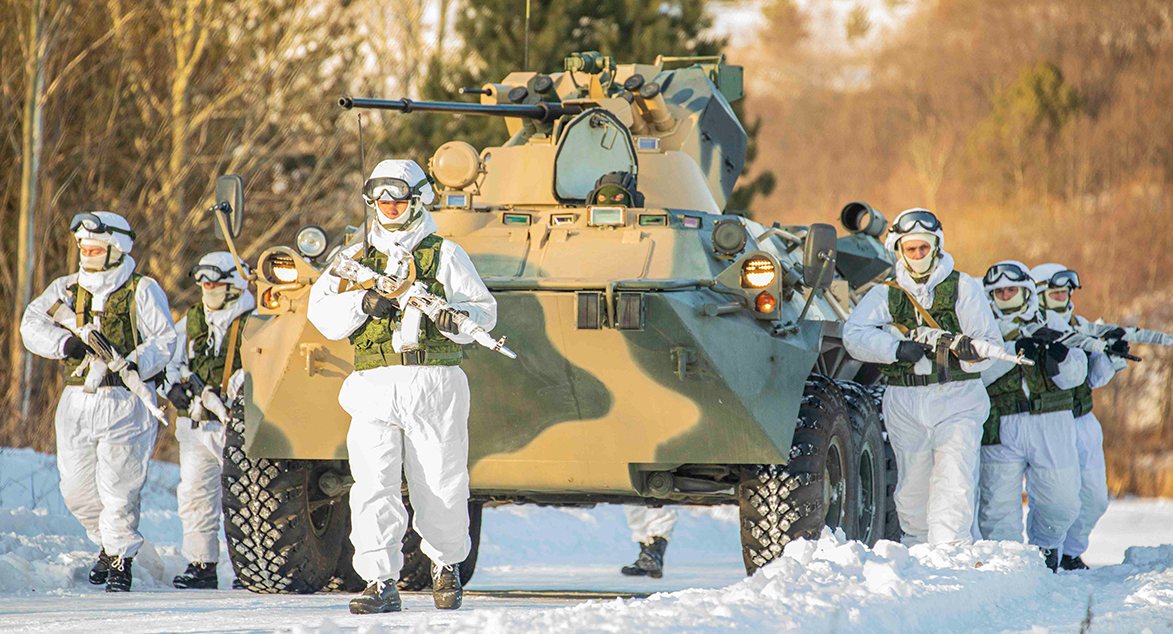RUSSIA MONITOR
Date: 27 February 2020
Russia Poses Greater Threat to Georgia
In its policy toward Georgia, Russia is seeking to prevent Tbilisi from forging a close alliance with the United States while blocking the Caucasian country’s bid for NATO membership. The Kremlin had the same goal back in 2008, while now being committed to using hybrid warfare methods and building up its military close to the country’s borders.

The investigation conducted jointly by Georgian, U.S., and UK services corroborated Russia’s involvement in a massive October 2019 cyberattack against Georgia. The large-scale operation that knocked thousands of Georgian state and private websites offline was both planned and carried out by Russian military intelligence services. The attack was orchestrated by a notorious Russian hacking unit known as Sandworm, also referred to as GRU Unit 74455, which is believed to be responsible for some of the most brazen cyberattacks around the world, including meddling in U.S. elections in 2016. Countries like the United States, Poland, and the Czech Republic pledged their support for Georgia in its efforts to build up the country’s cyber defense. The Russian Foreign Ministry denied any accusations from Georgia and its Western allies that Moscow was behind the assault.
Support Us
If content prepared by Warsaw Institute team is useful for you, please support our actions. Donations from private persons are necessary for the continuation of our mission.
The government in Tbilisi feels concerned by something else that just Russian hybrid activities that gained momentum after last year’s incident involving a Russian deputy in the Georgian parliament. In consequence, a massive wave of anti-Russian protests swept across the country, prompting Moscow to introduce sanctions against the neighbor, with Georgia’s tourism industry having suffered a major setback. Fears are high that the Kremlin will come back to its military means, also by using Abkhazian separatists. So far, public attention has focused on the Russian-backed region of South Ossetia, where Moscow moved the borders between territories controlled by insurgents and those administered by the government in Tbilisi, and where Russian forces kidnapped residents at the Georgian border. However, Moscow has decided to upgrade the so-called “Abkhazian army.” In doing so, it implies that Russia-backed Abkhazian and Ossetian separatists might be a tool for staging armed provocations against Georgia. Notably, Russia has in recent weeks been bolstering its military contingents in the occupied territories of Georgia –– South Ossetia and Abkhazia –– while it is now planning to add more military personnel to its base in Armenia. The number of Russian military personnel in Georgia’s two breakaway regions of South Ossetia and Abkhazia has increased to 10,000 from 8,000. These take part in all major military drills throughout Russia. Both the 7th base in Abkhazia and the 4th base in the Tskhinvali region are integrated directly under the Southern Military Command of the Armed Forces of Russia. This is where Russia is deploying its brand-new weapons, including anti-aircraft missile batteries that allow Moscow to control the sky above Georgia. The country’s strategic position deteriorated in the aftermath of the 2008 war with Russia. Moscow replaced its so-called “peacekeepers” on Georgian territory with ordinary military personnel, while in breakaway regions of South Ossetia and Abkhazia, separatists declared their secession from Georgia. The Russian army is located close to a highway, or the only land route Turkey can use to reach mainland Azerbaijan. Moscow’s policy toward Georgia pictures the Kremlin’s long-lasting plans to drag the Caucasian country into its sphere of influence. Russia is likely to keep up with further provocations and hybrid warfare activities in the coming months. This may occur over Tbilisi’s involvement in this year’s Defender Europe 2020 exercises, and the upcoming parliamentary elections, slated for autumn this later. The Kremlin’s activities will be geared towards introducing the biggest number of pro-Russian MPs to the parliament while fuelling a spat between the ruling Georgian Dream coalition and the opposition, partly linked to former president Mikhail Saakashvili, who is wanted by the current authorities.
_________________________________
All texts published by the Warsaw Institute Foundation may be disseminated on the condition that their origin is credited. Images may not be used without permission.















